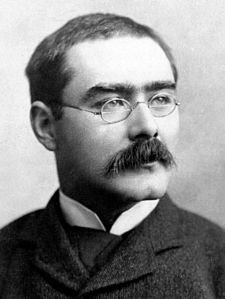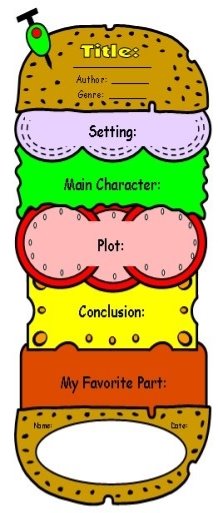Засідання читацького клубу Урок Rudyard Kipling «HOW THE RHINOCEROS GOT HIS SKIN», «HOW THE WHALE GOT HIS THROAT»
ПІБ вчителя Жукова Юлія Володимирівна
Місце роботи Комунальний вищий навчальний заклад «Бериславський педагогічний коледж імені В.Ф. Беньковського» Херсонської ради
Досвід роботи 5 років
Засідання
Англійського читацького клубу
з іноземної мови
на тему Rudyard Kipling
«HOW THE RHINOCEROS GOT HIS SKIN»,
«HOW THE WHALE GOT HIS THROAT»
Викладач:Жукова Ю.В.
Тема: Rudyard Kipling «HOW THE RHINOCEROS GOT HIS SKIN», «HOW THE WHALE GOT HIS THROAT»
Мета:
- Освітня
- формування комунікативних умінь: уміння слухати співрозмовника, реагувати на його мову, починати, підтримувати і завершувати розмову;
- формування читацької культури сучасного педагога.
- Практична
- оволодіння мовним матеріалом для вільного спілкування в усному та писемному мовленні за прочитаним матеріалом;
- уміння виконувати творчі завдання;
- оволодіння системою знань про культуру та традиції англомовних країн.
- Виховна
- розширення світогляду;
- виховання естетичного сприйняття літературного матеріалу;
- виховання толерантного ставлення до інших культур,
- Розвивальна
- розвивати культуру спілкування;
- розвиток творчого рівня вихованців, артистизму.
Інформаційні ресурси:
- Сайт комісії викладачів іноземних мов Запорізького педагогічного коледжу - [Електронний ресурс] // Режим доступу:http://english.ucoz.com /documents/ E_ Literature/13_14_Rudyard _Kipling_S.Maugham.do - Назва з екрану: english.ucoz.com
2. Unique Teaching Resources [Електронний ресурс] // Режим доступу - http://www.uniqueteachingresources.com/cheeseburger-book-report.html - Назва з екрану: Unique Teaching Resources
3. Wikipedia [Електронний ресурс] // Режим доступу - https://en.wikipedia. org/wiki/Rudyard_Kipling - Назва з екрану: Wikipedia
Хід заняття
|
Етап заняття |
Зміст заняття |
|
І. Організаційний момент |
|
|
1.1 Привітання |
Glad to meet you today! I want to propose you interesting activities for reading. |
|
1.2. Введення в іншомовне середовище |
But first you tell me: - Do you like reading? - What children's literature authors do you know? - What is your favourite fairy tale? - What is your favourite literature genre? |
|
ІІ. Основна частина заняття |
|
|
2.1 Повідомлення теми заняття |
Today we`ll speak about Rudyard Kipling`s tales «HOW THE RHINOCEROS GOT HIS SKIN» and «HOW THE WHALE GOT HIS THROAT». Two variants will work with different stories and then preset their results to audience in a creative way. |
|
2.3 Тренування у читанні та мовленні |
So, let`s start with the main information about famous English journalist, short-story writer, poet, and novelist - Rudyard Kipling. The main information you can find is organized as a book marker which are on your desks (appendix). Let`s read it. |
|
And of course the main part of our meeting is reading. You will use technology “Burger Book Report”. Here you have two different short-stories written by Rudyard Kipling. Unite into two groups. Here are the envelopes with text. Read about 20 min. Then organize all necessary information using “Burger Book Report. Do not forget about Classroom rules. Here are posters to remember you. Let`s repeat them. Read and translate one by one. Write on it, colour it, glue it and present to the audience your “burgers”. Audience has to put questions to each group (appendix 4). |
|
|
ІІІ. Заключний етап заняття |
|
|
3.1 Підведення підсумків |
I am glad that we have done these tasks. I want you take “Reading Comprehension Question Cube” drop it and say something about the story you`ve read. |
Appendix 1
|
|
||||||||||||||||||||||||||||||||||||||||||||||||
Appendix 2
|
|
|
Appendix 3
HOW THE RHINOCEROS GOT HIS SKIN
I
 - Rhinoceros [raɪ′nɒsərəs] - Носоріг
- Rhinoceros [raɪ′nɒsərəs] - Носоріг
- a Parsee [pQ:'si:] - парс (парси - одна з древніх релігійних каст в Індії)
- all alone - зовсім один
- a cooking-stove - кухонна плита
- flour , and raisins ['reiznz] - мука і родзинки
- fold - [fəʊld] складка
Once upon a time there lived a Parsee. He lived all alone on a desert island on the shores of the Red Sea. He had only three things: a hat, a knife and a cooking-stove.
One day the Parsee took some flour, raisins, sugar, water, and other things, and made a very big cake. He put this big cake on the cooking-stove and began to bake it. He baked it a very long time, till it became brown. The cake had a
very pleasant smell.
But just as the Parsee was going to eat his cake, he saw a Rhinoceros. It was a very big Rhinoceros. He had two little eyes and a horn on his nose.
Now you know that the skin of a Rhinoceros has many folds. But in those days, I must tell you, the Rhinoceros's skin had no folds at all.
The Rhinoceros liked the smell of the Parsee's cake, so he went straight towards that nice smell. The Parsee left the cake and climbed to the top of a palm-tree. The Rhinoceros overturned the cooking- stove, and the cake rolled on the sand. The Rhinoceros took the cake and ate it. Then he went away.
The Parses was very angry. He climbed down from the palm-tree and put the cooking-stove on its legs. Then he sang a magic song:
He that takes cakes
Which the Parsee-man bakes
Makes dreadful mistakes.
II
- filled it with cake-crumbs and dry raisins – наповнив її крихтами і сухими родзинками
- began to tickle him, just like - почали лоскотати його точно так, як і
- rubbed himself against it - почав тертися об неї
- And it spoiled his temper. — І це зіпсувало його характер.
Five weeks later it was very hot on the shores of the Red Sea. It was so hot that everybody took off all their clothes. The Parsee took his hat off, the Rhinoceros took off his skin. In those days his skin had three buttons underneath and looked like a raincoat. He could easily unbutton it and take off. So he took off his skin, put it on his shoulder and went to the sea to bathe. When he came to the sea, he put his skin in a cool place behind some rocks and went into the water. He bathed there for a long time.
Soon the Parsee came and found the Rhinoceros's skin in a cool place behind some rocks. When he saw it he smiled. He had not forgotten that the Rhinoceros had overturned his cooking-stove and eaten his cake. Now he could punish that Rhinoceros.
So the Parsee smiled and danced three times round the skin. He rubbed his hands because he was very glad. Then he went back to his camp. Now you must know that the Parsee always ate cake and nothing else. And so he had a lot of cake-crumbs in his camp. He took his hat and filled it with cake-crumbs and dry raisins. Then he went back to the shore.
He took the Rhinoceros's skin, which was lying in a cool place behind some rocks, and filled it with the old, dry crumbs and raisins. Then he rubbed the crumbs well into the skin. After that he climbed to the top of a palm-tree and began to wait for the Rhinoceros to come out of the water and put on his skin.
When at last the Rhinoceros came out of the water, he put on his skin and buttoned it underneath with the three buttons. And when he had done so, the crumbs and dry raisins began to tickle him, just like crumbs tickle you in bed. The Rhinoceros scratched, but that did not help. The crumbs still tickled him. He lay down on the sand and rolled and rolled. But the crumbs tickled him worse and worse. Then he got up and ran to the palm-tree and rubbed himself against it. He rubbed so hard that he rubbed his skin into great folds over his shoulders and round his legs and underneath where the buttons were. You see, when he was rubbing himself, he rubbed off his buttons, and he could not take off his skin any more. And it spoiled his temper.
The Rhinoceros went home very angry, and on the way he scratched all the time.
And since that time, every rhinoceros has great folds in his skin and a very bad temper, because he has cake-crumbs inside and they tickle him.
Then the Parsee climbed down from the palm-tree with his hat on; and he took his knife and his cooking-stove and went away from that desert island.
HOW THE WHALE GOT HIS THROAT
- Swim to latitude Fifty North and longitude Forty West. – Пливи до п'ятдесятого градуса північної широти і сорокового градуса західної довготи.
- suspenders [sq'spendqz] – підтяжки
- swallow ['swOlou] – ковтати
- found himself - опинився
- he is making me cough – я із-за нього кашляю
- It you want me to come out - Якщо хочеш, щоб я вийшов
- grating [′greɪtɪŋ] - решітка
- the Equator [I'kweItе] - Екватор
Once upon, a time there was a Whale. He lived in the sea and ate fishes. He ate all the fishes that he could find. At last there were no more fishes in the sea. There was only one very small Fish, but that was a very clever fish. He swam all the time near the Whale's right ear, and so the Whale could not eat him.
The Whale swam and swam and could not find any more fishes. He was very hungry. He stood up on his tail and said, "I am hungry." Then the small Fish said in a very small voice: "Oh, Whale, have you ever tasted Man?" "No," said the Whale, "no, I haven't. Is it nice?" "Yes," said the small Fish, "very nice, but it tickles." "Then bring me some," said the Whale and made a storm with his tail.
The small Fish said:
"Swim to latitude Fifty North and longitude Forty West. There you will find a shipwrecked Sailor. He is sitting on a raft in the middle of the sea. He has a pair of blue trousers, a pair of suspenders (you must not forget the suspenders) and a knife. Swim there and eat him. But you must know that this Sailor is a very brave and clever man."
The Whale was glad, because he was very hungry. He started at once for latitude Fifty North and longitude Forty West. He swam very quickly and soon he was there. And indeed, he saw the Sailor on his raft. And the Sailor had a pair of blue trousers, a pair of suspenders (you must remember the suspenders) and a knife.
At that time, you must know, the Whale had a very big throat. So he swam up to the Sailor, opened his big mouth and swallowed him. He swallowed the Sailor together with his raft, his blue trousers, his suspenders (which you must not forget) and his knife. He liked it very much.
You remember that the Sailor was very brave and very clever. So when he found himself in the warm, dark stomach of the Whale, he was not afraid at all. He began to make a noise and run about in the Whale's stomach. He jumped and danced and beat the Whale on the sides of his stomach. And the Whale felt very unhappy. (Have you forgotten the suspenders?)
So the Whale said to the small Fish, "You are right, the Man tickles very much. Besides, he is making me cough. I don't know what to do."
"Tell him to come out," said the small Fish.
And the Whale said to the Sailor, "Come out and don't tickle me. You make me cough."
But the Sailor was a very clever man. He said, "No, I don't want to come out now."
"Why not?" said the Whale.
"Because I am far from my home. What shall I do in the middle of the sea where there are no ships? If you want me to come out, take me to my native shore and then I'll think about it."
"But I don't know where your native shore is."
"Take me to the country which is called England," said the Sailor. And he began to jump and dance in the Whale's stomach again. The Whale was really very unhappy.
Then the small Fish said to him, "I told you that the Sailor was very brave and clever. You had better take him home."
So the Whale had to swim to England. It was a long way and it was difficult for the Whale to swim because the Sailor was dancing and jumping in his stomach, and he couldn't stop coughing. But he swam and swam, as fast as he could.
At last he saw the land which is called England. He swam up to the shore and opened his big mouth very wide. "Come out," he said to the Sailor, "here is your native shore." And the Sailor walked out of his mouth on to the sand. Now I must tell you a very important thing. When the Whale was swimming, the Sailor, who, as you know, was a very clever man, had taken his knife, cut up the raft and made a little grating, which he had tied with his suspenders (now you know why you had to remember the suspenders!). And when he was walking out of the Whale's stomach, he pulled that grating behind him, and the grating stuck in the Whale's throat.
The Whale swam away. But he could not swallow the grating down and he could not cough it up, and from that day he could eat only very small fish. That's why whales never eat men or boys and girls.
The small clever Fish went and hid himself deep in the mud under the Equator. He was afraid of the Whale. He thought that the Whale would eat him.
And the Sailor went home with his knife. He had on his blue trousers, but he had no suspenders, because he had tied the grating with them. He went home to his mother and then he married and lived happily for many years.
Appendix 4
HOW THE RHINOCEROS GOT HIS SKIN
QUESTIONS
- What did the Parsee do one day? Was it a good cake? Why do you think so?
- What did the skin of the Rhinoceros look like in those old days?
- What did the Rhinoceros do? Did the Parsee like it?
- Tell how the Parsee punished the Rhinoceros.
HOW THE WHALE GOT HIS THROAT
QUESTIONS
- Why couldn't the Whale eat the small Fish?
- What did the small Fish tell the Whale to do?
- What did the Sailor have?
- Why did the Whale agree to take the Sailor to England?
- Explain why the small Fish hid himself deep in the mud under the Equator.


про публікацію авторської розробки
Додати розробку






